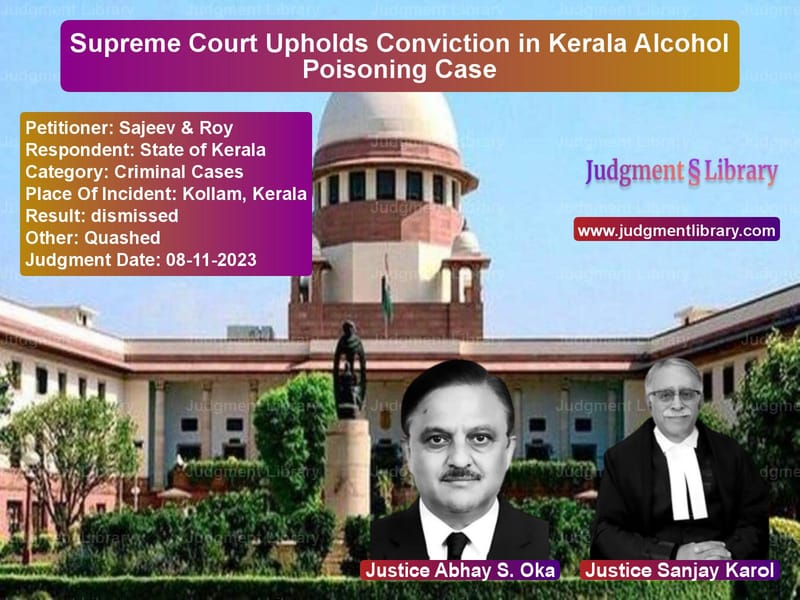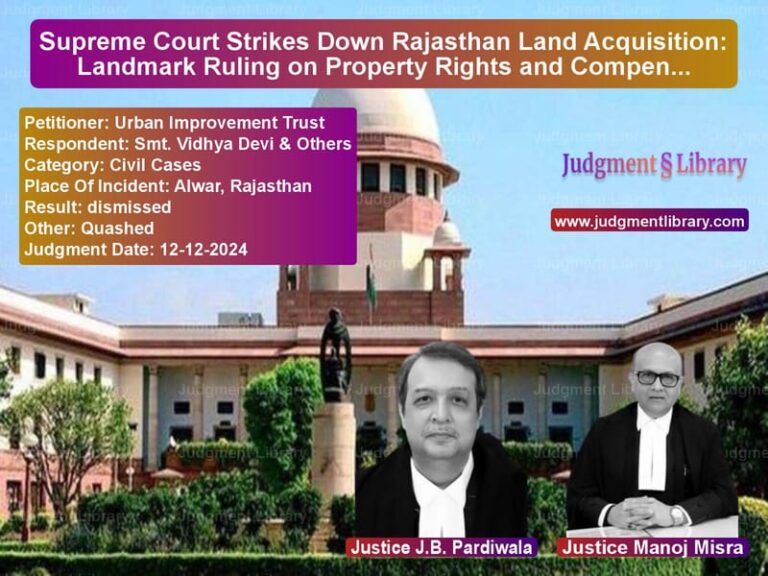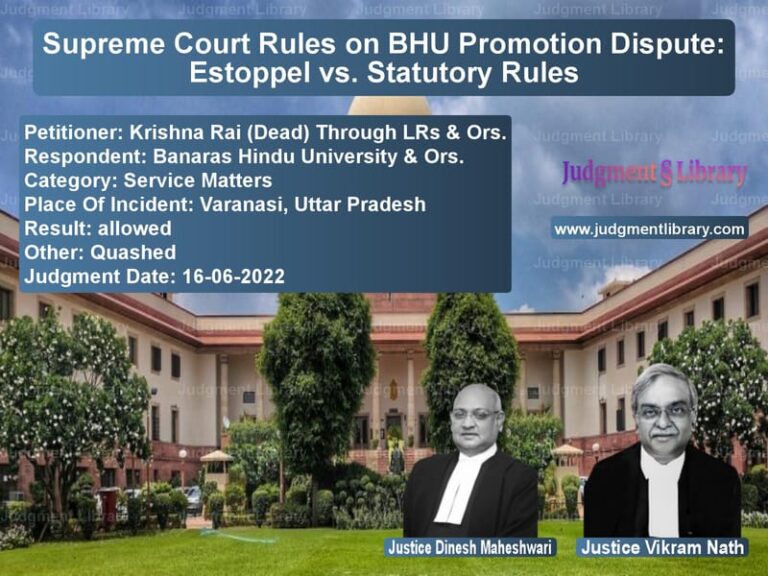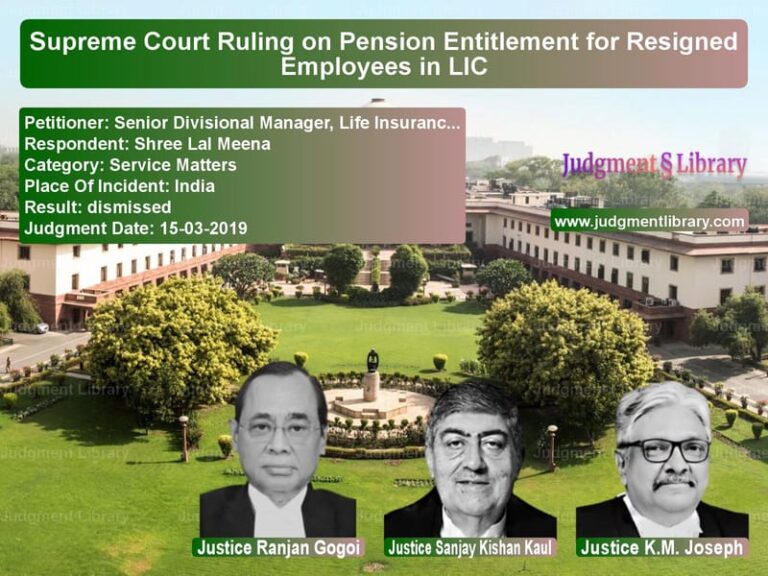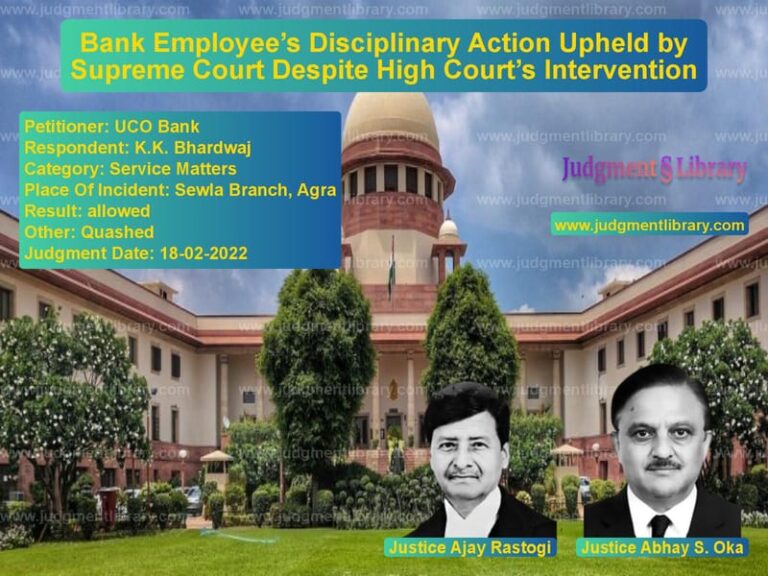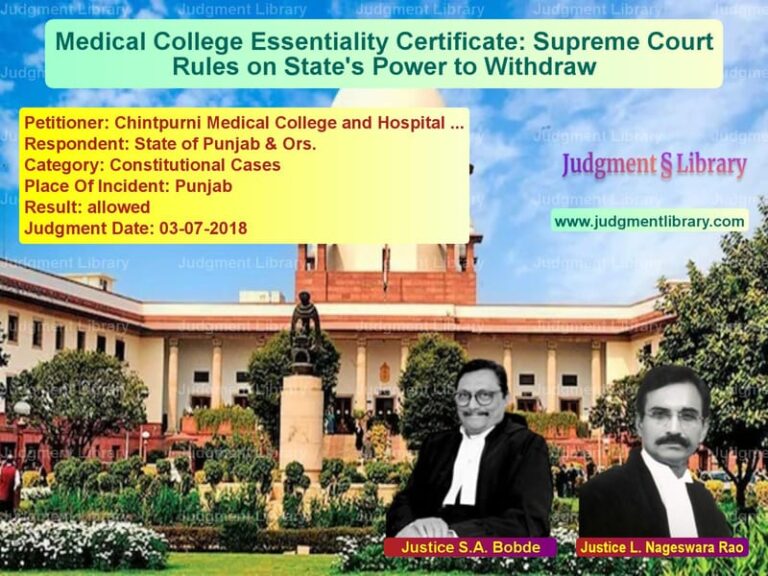Supreme Court Upholds Conviction in Kerala Alcohol Poisoning Case
The Supreme Court of India recently upheld the conviction of two accused, Sajeev and Roy, in the infamous Kerala alcohol poisoning case that led to the death of seven individuals, blindness in 11 others, and severe injuries to over 40 people. This case underscores the grave consequences of illegal liquor trade and the importance of stringent enforcement of the Abkari Act.
Background of the Case
The case dates back to April 2003, when a batch of illicit liquor, laced with methyl alcohol, was sold in Kollam, Kerala. The contaminated liquor led to multiple fatalities and injuries, triggering a police investigation that resulted in the arrest of several individuals, including A10 (Sajeev) and A11 (Roy).
The prosecution alleged that the accused, along with other conspirators, engaged in the illegal sale of adulterated liquor through an illicit outlet. The accused were initially convicted by the Sessions Court, and their conviction was upheld by the Kerala High Court. Subsequently, they appealed to the Supreme Court, seeking an acquittal.
Key Legal Issues
- Whether the accused conspired to sell illicit liquor laced with methyl alcohol.
- Whether their actions constituted criminal conspiracy under Section 120B IPC.
- Whether they were guilty under Sections 302, 307, and 326 IPC for murder, attempted murder, and grievous hurt.
- Whether their acts violated Sections 55(a), (h), (i), and 57A of the Abkari Act.
Prosecution’s Case
The prosecution presented the following key evidence:
- Eyewitness testimony from victims and family members of deceased individuals, confirming that the liquor was purchased from the accused’s network.
- Forensic examination confirming the presence of methyl alcohol in the recovered liquor samples.
- Testimony of investigators linking the accused to the illegal sale of toxic liquor.
- Business records from the accused’s firm, RR Distributors, which showed fabricated transactions to conceal the sale of methyl alcohol.
Defense’s Arguments
The accused contended:
- They had no direct involvement in the sale of illicit liquor.
- The alleged transaction of methyl alcohol supply was a legitimate business deal.
- The prosecution failed to prove intent to cause harm.
- The forensic evidence was circumstantial and did not directly link them to the deaths.
Supreme Court’s Analysis
1. Establishing Criminal Conspiracy
The Court ruled that the accused actively participated in the conspiracy:
“Conspiracy is rarely proved by direct evidence. The conduct of the accused, their association with the prime conspirator, and circumstantial evidence sufficiently establish their complicity.”
2. Application of Abkari Act
The Supreme Court upheld the application of Section 57A of the Abkari Act, which penalizes adulteration of liquor:
“The sale of methyl alcohol as an intoxicant is a grave offense. The accused had knowledge of the lethal effects, making them liable under the Abkari Act.”
3. Role of Forensic Evidence
The Court emphasized the significance of forensic evidence:
“The cans recovered from the accused’s possession were identical to those used in the crime. The forensic reports confirm that the methyl alcohol was of the same composition.”
4. Lack of Explanation by the Accused
The Court noted that the accused failed to offer a satisfactory explanation:
“When faced with overwhelming circumstantial evidence, the accused remained silent, allowing an adverse inference against them.”
Final Judgment
The Supreme Court:
- Dismissed the appeal of Roy (A11).
- Noted that Sajeev (A10) had passed away, and thus, his appeal was abated.
- Directed the immediate revocation of bail for Roy (A11) and ordered him to surrender.
Conclusion
The judgment underscores:
- The zero-tolerance approach of courts towards illicit liquor trade.
- The importance of circumstantial and forensic evidence in criminal convictions.
- The judiciary’s role in upholding public safety and deterring organized crime.
By affirming the conviction, the Supreme Court has reinforced the need for stringent enforcement of the Abkari Act to prevent mass poisoning incidents in India.
Petitioner Name: Sajeev & Roy.Respondent Name: State of Kerala.Judgment By: Justice Abhay S. Oka, Justice Sanjay Karol.Place Of Incident: Kollam, Kerala.Judgment Date: 08-11-2023.
Don’t miss out on the full details! Download the complete judgment in PDF format below and gain valuable insights instantly!
Download Judgment: sajeev-&-roy-vs-state-of-kerala-supreme-court-of-india-judgment-dated-08-11-2023.pdf
Directly Download Judgment: Directly download this Judgment
See all petitions in Murder Cases
See all petitions in Attempt to Murder Cases
See all petitions in Fraud and Forgery
See all petitions in Money Laundering Cases
See all petitions in Custodial Deaths and Police Misconduct
See all petitions in Judgment by Abhay S. Oka
See all petitions in Judgment by Sanjay Karol
See all petitions in dismissed
See all petitions in Quashed
See all petitions in supreme court of India judgments November 2023
See all petitions in 2023 judgments
See all posts in Criminal Cases Category
See all allowed petitions in Criminal Cases Category
See all Dismissed petitions in Criminal Cases Category
See all partially allowed petitions in Criminal Cases Category

